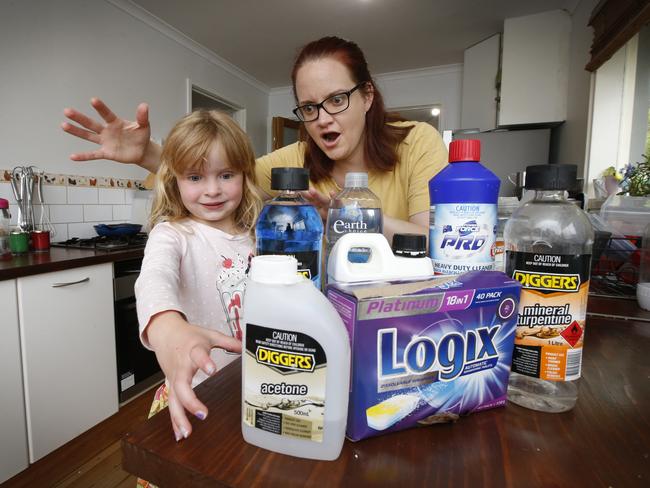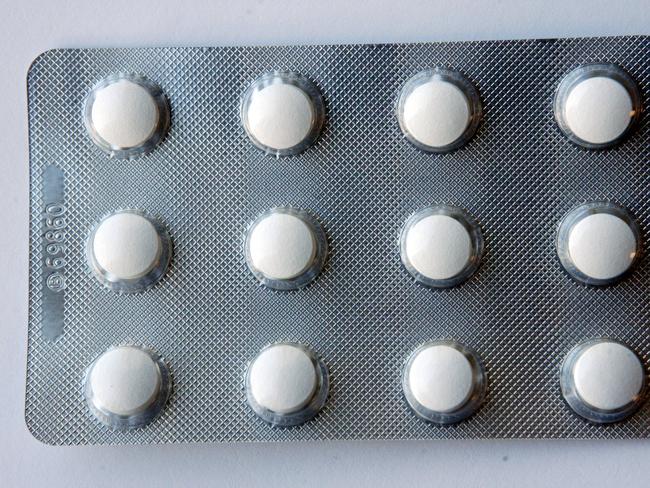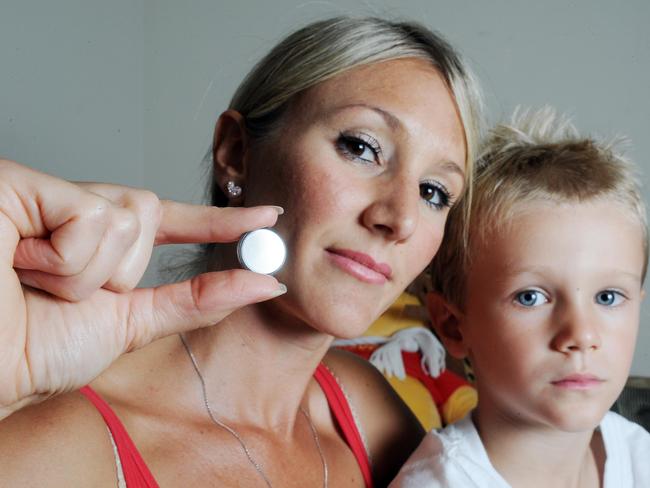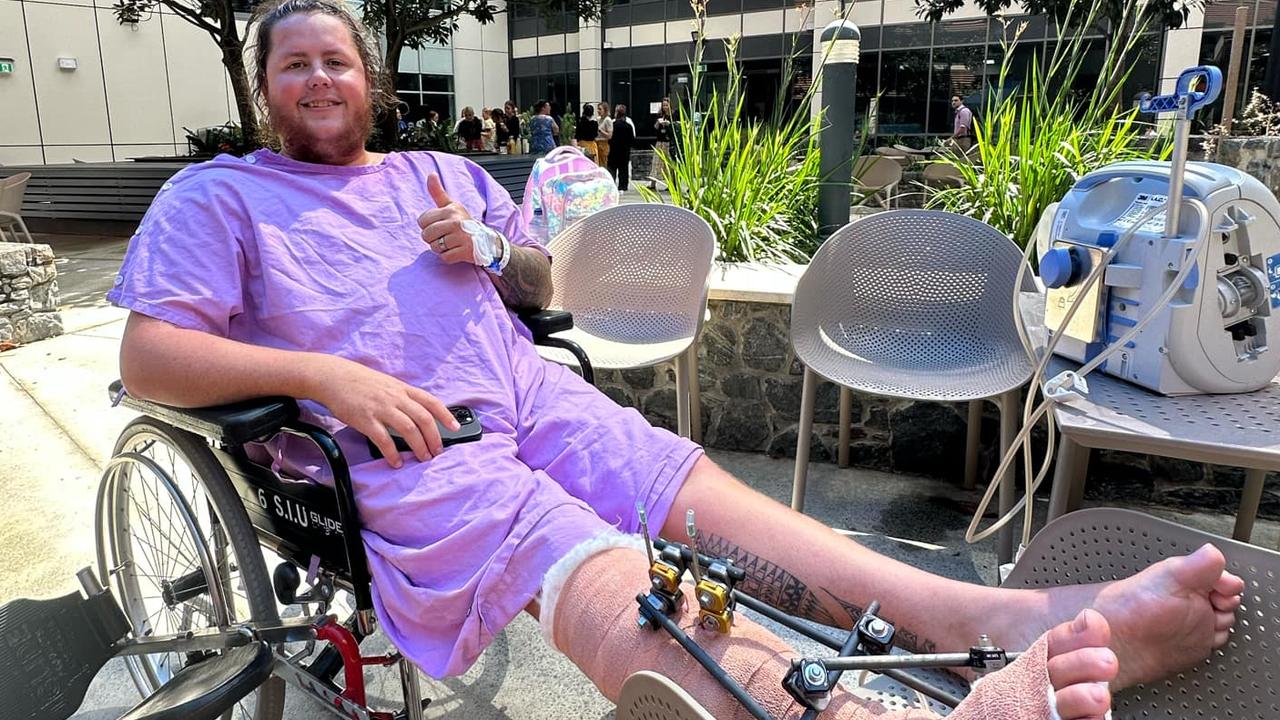Household items poisoning Queensland kids
Queensland parents are being warned common household products pose a serious poisoning threat these summer holidays. Here are the top dangers at home.

QLD News
Don't miss out on the headlines from QLD News. Followed categories will be added to My News.
Queensland parents are being warned common household products pose a serious poisoning threat these summer holidays. At least 1790 cases of actual or suspected exposures to poisons involving children up to 19 years old were recorded across the December 1 to January 31 period in the state over the past three years.
The figures, from the Queensland Poisons Information Centre, show more than 490 cases pertained to the common headache-busting drug paracetamol, and more than 360 related to ibuprofen.
Silica gel — which is found in some product packages to help absorb moisture — also caused concern (214 cases), as well as household cleaners (161), glow sticks (142), and the variety of toilet cleaner that sits under the rim of the bowl (135).
Foreign bodies, which can range from a shard of glass to a toy doll’s shoe, also appeared in top 10 lists for each period over the past three years and totalled 123 exposures.
The Centre’s manager, Carol Wylie, said accidental exposure to many of the poisons would not require hospital treatment and could be managed at home.
However, some were particularly dangerous.

Ms Wylie said that people who had ingested some varieties of household cleaner, such as oven cleaner, would be told to go to hospital. The same advice applied to drain cleaner exposures, and in some cases, poisonings through consuming automatic dishwasher detergents — which were involved in 85 cases over the past two summer holiday periods — depending on how much was consumed.
Paracetamol and ibuprofen exposures featured prominently across all age groups, but usually only caused severe problems when taken in large quantities deliberately, she said.
Ms Wylie said in the event of a poisoning or suspected poisoning, vomiting should not be induced.
“Studies have shown that when you make someone vomit, you might only get 30 per cent of the contents out of the stomach anyway,” she said.
“And the other thing is if someone swallows something that’s corrosive and can burn the windpipe, if you make them vomit it’s going to burn on the way up again”.
If the person had swallowed a small object, vomiting could also cause it to get stuck in the airways, she said.

Dr Osanda Wijeratne, deputy chief medical officer at Healthdirect Australia, said in order to lower the risk of poisoning at the home, products like cleaners and medications should be kept high up in cupboards, and fitted with a child-safety lock or clip.
Dr Wijerante said button batteries, which can cause-life threatening injuries and even death if swallowed, should be disposed of immediately when replaced, and when in use, secured to the greatest extent possible.
“Lots of household devices are powered by button batteries. It’s important to make sure that if you’re replacing them to make sure they’re not left lying around,” he said.
“When in use, make sure the battery compartment is shut … you can also use a strong bit of household tape to secure the compartment closed”.
He said adults sometimes found themselves in trouble after accidentally taking double doses, or mistaking another family member’s prescription medication as their own.
A way to avoid this if taking multiple medications was to ask a pharmacist to fill a Webster-pak, which sets out an individual’s weekly medication for them, he said.

Mother Emily Studd said her two young girls — Savannah, 12, and Sophia, five — have fortunately avoided accidents with household poisons because she took steps to ensure the common, yet dangerous products were out of their reach when they were younger.
“The cleaners are stored under the sink and the medicines are in a high cupboard in the bathroom and fridge,” Ms Studd said.
“My children are old enough to understand now, but we also don’t use many overly toxic chemicals or cleaners.
“Children can be incredibly quick and very clever at finding things they shouldn’t.”
For free poisons advice 24 hours a day, seven days a week, call the Poisons Information Centre on 13 11 26
TIPS TO PREVENT AND HANDLE POISONINGS
– Do not induce vomiting if a substance has been ingested.
– In the event of an exposure to the skin or eyes, flush with water for 10 minutes.
– Keep items like cleaners and medications up high in cupboards away from children.
– Do not decant cleaners into other bottles.
– Keep track of when you have taken your medications to avoid double dosing.
– Call the Poisons Information Centre for free advice, 24 hours a day, seven days a week on 13 11 26
Source: Genevieve Adamo, Senior Poisons Specialist, NSW Poisons Information Centre; Carol Wylie, Manager, QLD Poisons Information Centre; Associate Professor Shaun Greene, Medical Director, Victorian Poisons Information Centre




